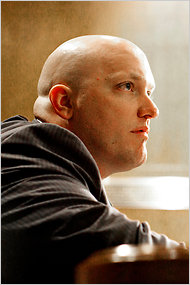Cost of Treating Veterans Will Rise Long Past Wars, 27 July 2010, NY Times
By: James Dao
WASHINGTON — Though the withdrawal of American military forces from Iraq and Afghanistan will save the nation billions of dollars a year, another cost of war is projected to continue rising for decades to come: caring for the veterans.
By one measure, the cost of health care and disability compensation for veterans from those conflicts and all previous American wars ranks among the largest for the federal government — less than the military, Social Security and health care programs including Medicare, but nearly the same as paying interest on the national debt, the Treasury Department says.
Ending the current wars will not lower those veterans costs; indeed, they will rise ever more steeply for decades to come as the population of veterans from Iraq and Afghanistan expands, ages and becomes more infirm. To date, more than 2.2 million troops have served in those wars.
Studies show that the peak years for government health care and disability compensation costs for veterans from past wars came 30 to 40 years after those wars ended. For Vietnam, that peak has not been reached.
In Washington, the partisan stalemate over cutting federal spending is now raising alarms among veterans groups and some lawmakers that the seemingly inexorable costs of veterans benefits will spur a backlash against those programs.
Even if cuts to veterans programs do not occur, the current mood of budgetary constraint seems likely to force the Department of Veterans Affairs to make do without the large spending increases it has received from Congress in the recent past.
That means efforts by veterans groups to expand existing health care programs, provide additional benefits to Vietnam veterans or institute new research into things liketraumatic brain injury or hearing loss will face difficult uphill battles, lawmakers and veterans advocates say.
“No one is thinking about the lifetime costs this country is responsible for,” said Senator Patty Murray, a Washington Democrat who is chairwoman of the Senate Veterans’ Affairs Committee. “I’m really worried.”
FULL ARTICLE AT: http://www.nytimes.com/2011/07/28/us/28veterans.html?_r=2








